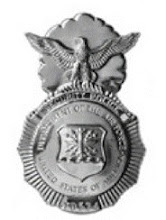

Probably my favorite period of US history is the first half of the 19th century. The first question in your mind is probably "What's so special about that period?" Let's talk about that time in American history. So...we're at the beginning of the country. We've fought the revolution and won and we exist as a country. Great. What happens now? Throughout the 1790s the country is fending off England, France and other countries that aren't quite believing that America is a credible, new country. Most European countries are convinced that if America was left to its own devices it would probably implode. After all, European countries had been around for centuries and America is a new experiment in self-government. Surely that won't work, right? Having said that, the first half of the 19th century was dicey to say the least for our country.
Now the books I will discuss are two. The first is "Henry Clay: Essential American" by David S. and Jeanne T. Fiedler and "American Lion" by Jon Meachem. Obviously, the first is about Henry Clay, the second is about Andrew Jackson. The importance of these two books is that Clay and Jackson were contemporaries and really enemies. These are two titans of government. Let's talk about what they believed.
Clay was a vehement advocate of the American System. That entailed spending federal money to improve the infrastructure of the states. Jackson not so much. I am not so much of a fan of the American System, but that was a dividing issue between the two.
Let's look at Clay's career. First he is one of the youngest appointed US Senators ever, pre-17th Amendment. Don't even get me started about the 17th Amendment. While a member of congress he was a major force in the Compromise of 1820 that set the Civil War back decades. If you remember, sectionalism was rising and the south was feeling really subordinate to the northern, manufacturing states. But the overall issue was slavery and the southern states wanted to protect that above everything else. Clay was from Kentucky and owned slaves. The compromise allowed the senate to maintain an equilibrium between southern (slave holding states) and northern (non-slave holding states).
Then Clay was involved in the nullification crisis of 1832. Long story short, John Calhoun, a slavery, southern state's rights adovocate, felt that the Tariff of Abominations (1828) was a killer for the south, and really it was. Calhoun, citing the Virginia and Kentucky Resolutions of 1798 written by Jefferson and Madison advocating nullification of laws felt to be unconstitutional, was the leader of the South Carolina delegation in electing "nullies" who then nullified the tariff.
This set up a confrontation with President Jackson, who personally didn't agree with the tariff, but felt that the rule of law must be obeyed. Jackson threatened to send a military detachment to enforce the law and hang any "nullies" who did not obey the law. Anyone familiar with Jackson's career wouldn't doubt his threat. Clay stepped in and negotiated a compromise tariff that headed off the crisis and saved another confrontation between the north and the south.
The last of Clay's moments as the "Great Compromiser" was the Compromise of 1850. It was a comglomeration of bills that allowed both the south and the north to save face and put off the Civil War for another decade. As you can probably tell I am a Clayophile. I think he is as the title of the book states, "The Essential American." Jackson on the other hand, was a great figure, but he was certainly the greatest example of the "Imperial Presidency." Is that a good thing?
Besides Clay's congressional career, he negotiated the Treaty of Ghent that ended the War of 1812. He was involved in every major decision of America from 1811 to 1850 until his death in 1852. All in all, he was the greatest statesman in American history. The beauty of American history is that two titantic figures such as Jackson and Clay were contemporaries who fought against each other for the betterment of the country. How was Clay not elected president when we were blessed with such lumunaries as Martin Van Buren, William Henry Harrison, John Tyler, James K. Polk, Zachary Taylor, and Millard Fillmore during the same period?
Read up on these two figures and know the greatness of this country. I loved both of these books and learned a tremendous amount about that vital first half of the 19th century. There were many great Americans. Just read.










15 comments:
The Compromise of 1820 or in other words, kicking the can down the street.
I had never heard of the "American system" (sounds like a good idea) have to do some study.
Clay was a hard fighter for losing causes. Slavery is obvious but also the economic system of plantation agriculture was being trumped by economic development in the north.
It kept the South down for some time.
Ducky,
Your response is right on. The growing economic disparity between the north and the south led to growing sectionalism. As the two sections grew apart economically and the south clung to slavery the Civil War became inevitable.
Madison vetoed the American System in 1816 on the grounds that it was an uncostitutional use of taxpayers' money. He had trouble with the various states funding infrastructure projects in other states. Strong message from the father of the constitution.
Thanks for the visit.
By coincidence I just received a copy of Heidler and Heidler in the mail. I'm not much of a "Clayophile," as you say, but the man still interests me and I'm still looking forward to getting to read it.
Carl,
Hopefully, after you read it you will be. Please let me know what you thought. Thanks.
I'm surprised at what you said...or maybe just naive. Would you say the Civil War was 80% over slavery? I believe there are some who think it had little to do with slavery, no?
Z,
I would say that the Civil War was most about the issue of slavery. When you couch it as state's rights it sounds like a good issue. But the major reason for state's rights was to preserve slavery upon which the south's economy rested.
The north's reason for invading was to preserve the union as stated by Lincoln numerous times. Abolishing slavery was a secondary cause to the north. The Emancipation Proclamation, January 1863 simply put the slavery issue in writing.
My opinion is that the state's rights argument is propounded by those whose wistful remembrance of the Civil War is a "noble Lost Cause."
I'm sure some will argue otherwise. I'll discuss in more depth in the third installment.
L&O teach, History, I love it,,,although when I went back to College (after I had matured, a little). Much Much later after I graduated HS.....Some of my electives were History, The interesting thing about it,,,,I lived much of what I was reporting and telliing it first hand, as I experienced it....Not to detract from your 19th century educational blog, which I truely enjoy, I am finding that much has been erased or not printed at all or slanted. My problem, when it comes to educating ones self, who does one believe. I have history books going back into the mid 19th century, I'm referring to textbooks. Are these to be believed?? I don't know, I do know I enjoy reading them. The Bible being taught in public school as literature, because of the types of writings. American Indians addressing public meeings held by early settlers. I could go on forever and I do ramble....Isn't education great????stay well and keep teaching.......
Tap,
As usual you comments are well taken. That is a major problem when teaching history. Use of primary sources is one route as at least, you get the facts as the people who lived saw them. Textbooks are at the mercy of the author. We use them, but I don't have a problem explaining some of the garbage in them. That's what make history an art and not a science. Social science? Not really.
Very well said, thanks you!
Law and Order Teacher,
As a good Kentucky schoolchild I was taught to revere Henry Clay and I did.
My issues with Clay these days deal more with how he propagated big government in the first half of the 19th century. He was perhaps the strongest supporter of the Second BUS which is what made his American System possible.
Neither the BUS nor his American System are perfect parallels to the Federal Reserve or big government of today, but they were steps designed to centralize what was still a fairly decentralized country.
It's interesting that Clay never won the presidency. He was the champion of the supremacy of the legislature over the executive branch (at least when Jackson was president!) I always wondered how President Clay would have governed if he reached the imperial presidency.
I read Robert Remini's book on Clay a few years ago. Wasn't too bad but didn't really deviate from popular perceptions about Clay: his positions on slavery were paradoxical but was basically a defender of the status quo.
Heidler and Heidler is just one in a big stack of books I'm trying to read. I'll let you know when I get to it.
Carl,
I look forward to your comments. AS a Kentuckian it will be interesting to hear your views. Remini's book was ok, but the Fiedlers I think, got ahold of Clay. Have you visited Ashland?
I've never been to Ashland but I'd still like to. I visited the Hermitage a couple years ago. It was quite a site.
thanks, Law and Order...I'll look forward to reading your next installment.
Carl,
Ashland was a great tour. I'd love to go to Hermitage someday. I not a huge fan of Jackson as president, but he certainly deserves his place as one of the most influential American presidents. As for Clay in the imperial presidency, it is interesting how one governs after election. Obama comes to mind, no?
Z,
I'll post probably sometime today. Thanks for the visit.
Post a Comment